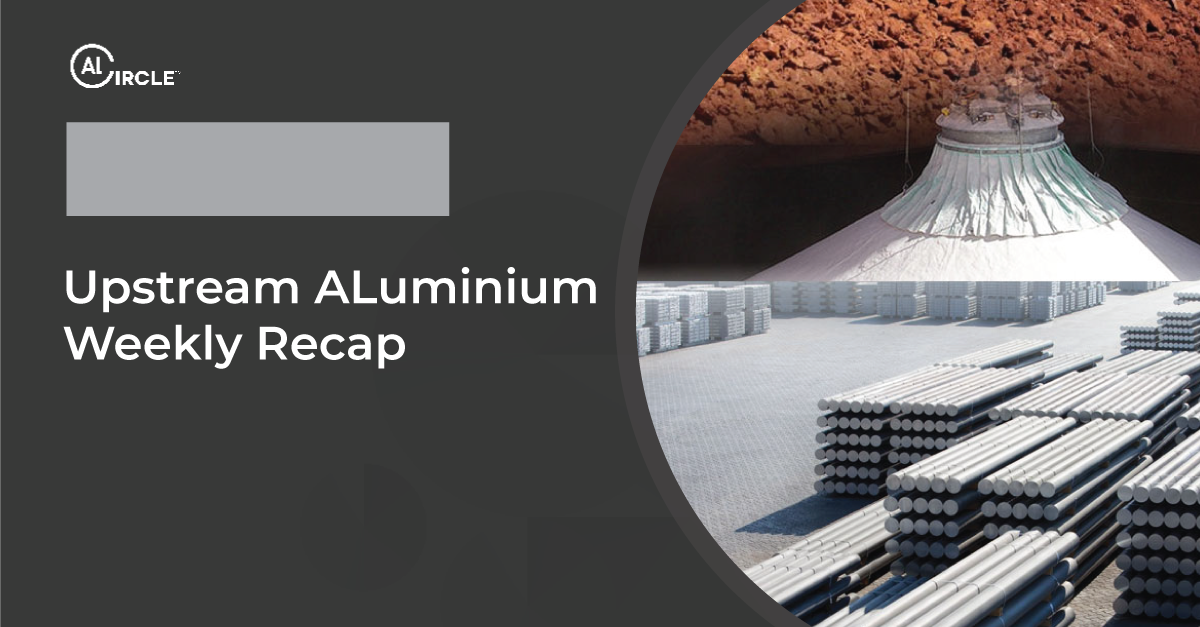The protectionist tariff strategy once championed by US President Donald Trump to bolster domestic aluminium and steel production appears to be backfiring in early 2025. US trade relations with India have entered a turbulent phase. The US recently rejected India’s request for consultations at the World Trade Organisation (WTO) over the doubling of tariffs on aluminium, steel and related products from 25 per cent to 50 per cent, classifying them under national security exemptions. India maintains that these are safeguard measures requiring formal notification and consultation, reserving the right to impose reciprocal trade actions. The strain in US-India trade ties comes just as India is deepening cooperation with Russia in the aluminium, mining and railway sectors. At the 11th session of the India-Russia Working Group on Modernisation and Industrial Cooperation in New Delhi on August 6, 2025, both nations signed a new protocol to strengthen collaboration in aluminium production, mining equipment, railway transport, and waste management. The real question now is, can India strike a diplomatic and economic balance that protects its interests while avoiding deeper trade rifts with its largest partners?

The protectionist tariffs once championed by US President Donald Trump as a means to revive domestic aluminium and steel production seem to be delivering the opposite outcome at least in early 2025. Industry data signals a clear slowdown, with both aluminium demand and production losing momentum in the first quarter. Figures from the Aluminum Association reveal that total aluminium demand in North America fell 4.1 per cent year-on-year in Q1 2025, dropping to 6.53 million tonnes from 6.83 million tonnes in Q1 2024 a stark reversal from the 4.3 per cent rebound seen during the same period last year. Read to know more here.
Despite intermittent border tensions and temporary checkpoint closures, trade between Thailand and Cambodia posted notable growth in early 2025, underscoring both the resilience and vulnerability of their cross-border economic ties. Data from Thailand’s Commerce Ministry, released Monday, shows bilateral trade rising 3.33 per cent year-on-year in the first half of 2025 to baht 95.147 billion, even as escalating geopolitical strains disrupted logistics and weighed on market sentiment. Click here to read more.
The US’s recent imposition of 25 per cent tariffs on Indian exports has raised alarm within the Odia community in North America, with professionals and entrepreneurs warning of severe economic consequences. They argue the move could drive up US inflation, disrupt bilateral trade, and strain India–US relations at a time when strong global partnerships are crucial. Calling the decision “short-sighted,” Debashis Sahoo, associate professor of computer science, engineering, and paediatrics at the University of California, San Diego, described it as a self-defeating policy. Click here to read more.
Alberta Investment Management Corporation (AIMCo), a Canadian Crown corporation and institutional investor owned by the Government of Alberta, has recently taken a new stake in Century Aluminum Company. The investment comes on the heels of Century’s Q1 2025 earnings release and its latest 13F filing with the US Securities and Exchange Commission (SEC). Century Aluminum is a global metals and mining player involved in the production of bauxite, alumina, and aluminium. Click here to read more.
Gujarat-based aluminium extrusion products maker ANB Metal Cast will launch its initial public offering (IPO) on August 8, becoming the ninth SME IPO to hit the market this week. The issue, priced in the range of INR 148–156 per share, will close on August 12, with the anchor book for institutional investors opening on August 7. Shares are slated to list on NSE Emerge on August 18, while allotment is scheduled for August 13. Click here to read more.
Through 2024 and into 2025, copper markets have been roiled by US trade investigations and ongoing ore supply shortages pressures felt most acutely in China, the world’s largest copper consumer and producer. Yet the turbulence extends beyond copper, as both non-ferrous and ferrous metals globally undergo a broader structural shift. Click here to read more.
Aluminium Bahrain B.S.C. (Alba), the world’s largest single-site aluminium smelter, has reported its Q2 and first-half 2025 financial results, showing a sharp drop in profitability despite modest year-on-year revenue growth. The decline was driven by tariff pressures, higher alumina costs, and subdued aluminium demand, all weighing on the company’s quarterly performance. Click here to know more.
LME price update
On Monday, August 4, both LME aluminium cash bid price and LME aluminium official settlement price surged by USD 30.5 per tonne and USD 30 per tonne to halt at USD 2,574.5 per tonne and USD 2,575 per tonne. The prices on Tuesday, witnessed minimal movement arriving at USD 2,567.50 per tonne and USD 2,568 per tonne. On Wednesday, both the cash bid price and the official settlement price rose to USD 2,589 per tonne and USD 2,589.5 per tonne. On Thursday, the LME aluminium price witnessed further growth with both cash bid price and official settlement price showing upward momentum.
Under the bauxite segment
Rio Tinto has approved a USD 180 million investment to develop the Norman Creek project at its Amrun bauxite mine on Queensland’s Cape York Peninsula. The project will tap into around 466 million tonnes of high-grade bauxite nearly half of Amrun’s 978 million-tonne declared reserves with an average alumina content of 54.4 per cent. Click here to read more.
As of August 5, 2025, Guinea has revoked the bauxite concession held by Guinea Alumina Corporation (GAC), a subsidiary of Emirates Global Aluminium (EGA), citing breaches of the national mining code. The concession has been reassigned to a newly formed state-backed entity, marking a possible strategic pivot by Guinea toward maximising domestic use of its mineral resources and reducing dependence on foreign operators.
Bosnian bauxite miner Boksit posted a net profit of 4.7 million marka (USD 2.8 million / EUR 2.4 million) in the first half of 2025, a sharp rebound from 791,013 marka in the same period last year, the company announced last week. The turnaround came despite a 43.5 per cent year-on-year drop in revenue to 15 million marka, driven largely by aggressive cost-cutting.
Under the alumina segment
Data from the Iranian Mines and Mining Industries Development and Renovation Organisation (IMIDRO) shows that Iran produced 74,425 tonnes of alumina powder between March 21 and July 22, 2025. This marks a 3.1 per cent year-on-year decline from 76,885 tonnes in the same period of the previous Iranian calendar year (1403).
Global alumina production (including chemical grade) fell sharply in June 2025, down 3 per cent month-on-month to 12.147 million tonnes the lowest level since February, according to the International Aluminium Institute (IAI). The decline, spanning both metallurgical and chemical-grade output, points to mounting challenges across the supply chain.
India’s alumina trade dynamics are undergoing a marked shift, fuelled by growing domestic capacity and a move away from traditional suppliers such as Bahrain. Rising local production and stabilising global market conditions are prompting Indian refiners to reassess their sourcing strategies for this critical aluminium smelting input.
Other significant news
A UK aluminium casting facility struggling with recurring pump failures caused by extreme process water temperatures of up to 87°C has resolved the issue with a custom high-heat pumping solution developed by Wildon UK in partnership with KSB. The aluminium ingot supplier had faced repeated breakdowns in its casting pit, as water temperatures exceeded the limits of standard submersible pumps. To address the risk, Wildon UK and KSB engineered a bespoke, high-performance system that now ensures uninterrupted operations. Click here to read more.














